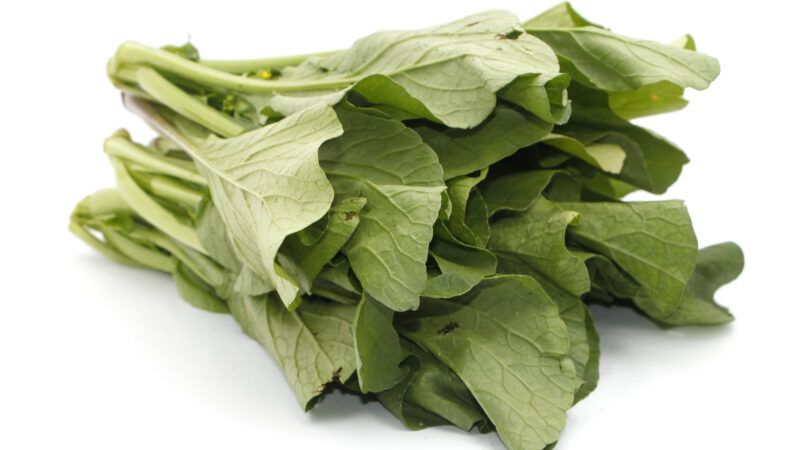CRISPR Mustard Greens Test America's Appetite for Designer Veggies
The North Carolina–based biotech startup Pairwise will begin selling genetically modified and better-tasting mustard greens.

If you've ever wanted to eat mustard greens raw without experiencing the dreaded burning "mustard bomb," gene-editing technology will soon give you the chance.
North Carolina–based health-food startup Pairwise used CRISPR to develop a new type of mustard greens that is less bitter and pungent than the traditional version but has the same nutritional value. The company's crops will soon be available in restaurants in the Minneapolis–St. Paul region, St. Louis, Missouri, and Springfield, Massachusetts. The greens are slated to be available in grocery stores this summer, likely beginning in the Pacific Northwest.
CRISPR targets and cuts genetic material to manipulate the code of organisms, enabling the suppression of some traits and the enhancement of others. In a report on its work, Pairwise said it altered the DNA of mustard greens until its trials achieved "a stable reduction in pungency in edited plants across multiple environments." Before the company's successful CRISPR trial, the report noted that minimizing "undesirable attributes associated with leafy greens" required cooking the leaves, which reduced the plants' "nutrient quality."
Pairwise's gamble is that if mustard greens can be made to taste good raw, consumers would eat them that way instead of boiling away their nutritional value to make them palatable. Given that cooked mustard greens are popular in Asian and Mediterranean cuisines, selling them as a salad ingredient could expand their market.
This goal means that Pairwise must appeal directly to consumers in a way that most companies generally don't when changing the DNA of an agricultural product. Companies that sell crops adjusted with genetically modified organisms (GMOs) to increase crop yields are pitching farmers and agribusinesses, not grocery stores and restaurant customers. Furthermore, most companies would rather advertise that their products are free of genetic modification.
Pairwise will have to convince consumers who are often reluctant to try bioengineered foods. "Most people don't have a lot of knowledge about GMOs…if they were to see a label about them, they would likely be averse to them," Jayson Lusk, an agricultural economist at Oklahoma State University, told The Washington Post.
That said, CRISPR tech itself may give the company an advantage. A brief by the Food and Drug Law Institute noted that CRISPR uses DNA "from nature-generated genetic variations within the crop itself, and not from another reproductively incompatible organism." This fact led the U.S. Department of Agriculture (USDA) to open the door to CRISPR since it avoids the bioengineered label of GMO products.
In 2018, then–Secretary of Agriculture Sonny Perdue declared that the USDA "does not regulate or have any plans to regulate plants that could otherwise have been developed through traditional breeding techniques as long as they are not plant pests or developed using plant pests." Therefore, Pairwise was able to move forward with little hindrance.
"In the past, many of the [genetically modified] or gene-edited improved traits benefit farmers, with consumers not realizing the indirect benefits of reduced food costs and enhanced farming practices," says Paul Ulanch, senior director of focused initiatives at the North Carolina Biotechnology Center. "Consumers have embraced improvements to produce foods in the past, such as seedless grapes and melons. I anticipate consumers will embrace foods that have been modified via precision gene editing that offers additional value, such as improved nutrition, flavor, and shelf life."
CRISPR technology has the potential to create better-tasting and healthier food, and the USDA's ruling will allow mustard greens to meet their fate in the free market. By releasing the greens to market, consumers, not regulators, will determine whether Pairwise will turn a profit.


Show Comments (31)